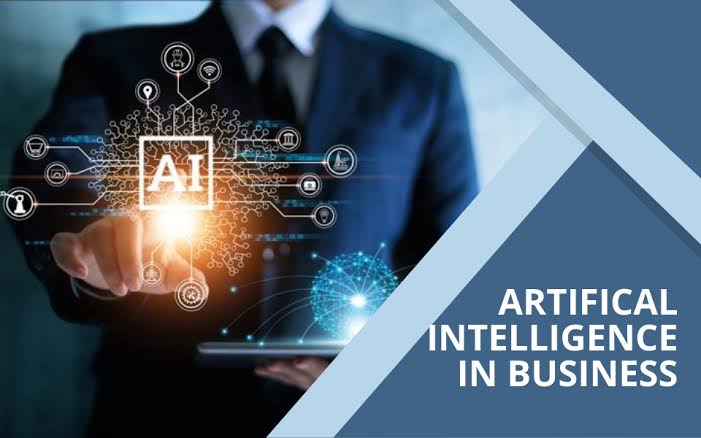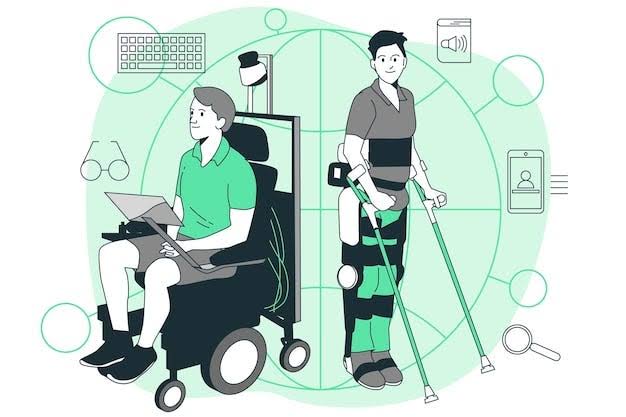Artificial Intelligence (AI) is no longer a distant concept from science fiction—it has become a transformative force reshaping the business landscape worldwide. As of July 2025, AI has moved beyond predictive analytics and chatbots into deeper, more intelligent systems capable of decision-making, strategy formation, and innovation. Its integration into daily operations is not just enhancing efficiency but also redefining how companies compete and evolve.
The adoption of AI is now a fundamental business decision, not a technical luxury. Organizations that understand and leverage AI’s potential are finding themselves at a significant competitive advantage, both in terms of performance and customer relevance.
Smarter Decision-Making with Data
One of AI’s most profound impacts in business is its ability to analyze massive datasets in real time. With machine learning models, companies can now identify trends, detect anomalies, and generate actionable insights without human bias or delay. This data-driven decision-making has helped executives move from instinct-based management to evidence-based strategies.
From finance to marketing, AI tools are enabling predictive analytics that help forecast demand, monitor consumer sentiment, optimize pricing, and even anticipate supply chain issues. With the rise of generative AI models, decision support systems can now simulate multiple scenarios to recommend the best course of action.
Enhanced Customer Experience
Customer expectations have grown alongside digital advancements. AI is helping businesses meet these expectations through personalization at scale. Today’s AI systems track user behavior across multiple touchpoints to tailor content, product recommendations, and services in real time.
Voice assistants, chatbots, and intelligent support agents can now handle complex queries, understand emotional tone, and provide 24/7 support. For example, in retail and e-commerce, AI engines suggest personalized shopping experiences based on real-time engagement, past behavior, and even micro-trends. The result is higher customer satisfaction and loyalty.
Automation of Routine and Repetitive Tasks
AI-powered automation is liberating employees from mundane, repetitive tasks. Robotic Process Automation (RPA), enhanced by AI, can now handle data entry, invoice processing, employee onboarding, and many other back-office operations with minimal human intervention.
In industries like banking, logistics, and healthcare, AI is used to streamline workflows, reduce manual errors, and speed up processing time. This doesn’t just cut operational costs—it also allows human workers to focus on more strategic and creative tasks.
AI in Human Resources and Talent Management
The recruitment and HR landscape is also undergoing an AI-led transformation. Intelligent tools can now screen resumes, assess candidate fit using predictive analytics, and even conduct preliminary interviews using natural language processing.
Beyond hiring, AI helps in monitoring employee engagement, predicting turnover risk, and tailoring learning and development paths. By understanding employee data, companies can improve workplace satisfaction and retain top talent more effectively.
Supply Chain and Logistics Optimization
AI is revolutionizing logistics and supply chain management through real-time tracking, demand forecasting, and route optimization. Using AI, companies can reduce delivery times, optimize fuel consumption, and respond proactively to potential disruptions.
Warehouse automation using AI-driven robots, vision systems, and smart inventory tracking has also enhanced the speed and accuracy of order fulfillment. This is particularly valuable in sectors like e-commerce, where customer expectations for fast delivery are high.
Financial Forecasting and Risk Management
In finance, AI is playing a vital role in detecting fraud, forecasting market trends, and managing risk. Machine learning algorithms can analyze patterns that humans might miss, allowing for quicker and more accurate financial decisions.
Banks and investment firms are now using AI to power robo-advisors, assess creditworthiness, and model economic scenarios. For insurance companies, AI helps in underwriting, fraud detection, and claim processing—making operations faster and more secure.
Marketing and Content Creation
AI is significantly shaping digital marketing strategies. Through audience segmentation, predictive analytics, and campaign optimization, marketers are achieving greater ROI with less manual effort.
Generative AI tools like image and text generators can create ad content, social media posts, blogs, and even video scripts. These tools are being used by creative teams to speed up content creation while still retaining brand voice and consistency.
Moreover, AI-driven analytics platforms now provide detailed insights into user interaction, helping marketers refine strategies in real time.
Cybersecurity and Threat Detection
As cyber threats become more sophisticated, AI is becoming a key line of defense. AI algorithms can detect anomalies in network behavior, flag potential breaches, and even respond to threats autonomously.
Modern cybersecurity systems use machine learning to understand patterns of malicious activity, identify zero-day vulnerabilities, and block suspicious actions in real time. For businesses that rely heavily on digital infrastructure, AI-driven cybersecurity is not just a benefit—it’s a necessity.
Ethics, Regulation, and Responsible AI Use
As AI becomes more powerful, the need for ethical and transparent use grows. Bias in algorithms, data privacy issues, and misuse of generative AI are real concerns. Businesses are now expected to build ethical frameworks around their AI use, ensuring fairness, accountability, and compliance with global regulations.
The European Union’s AI Act and similar regulatory movements around the world are pushing for more transparent AI practices. Companies that implement ethical AI frameworks will build trust with users and avoid legal and reputational risks.
Key Sectors Poised for AI Disruption
Several industries are experiencing rapid AI-driven transformation:
- Healthcare – AI for diagnostics, drug discovery, and personalized treatment.
- Manufacturing – Predictive maintenance, quality control, and process automation.
- Education – Adaptive learning platforms and AI tutors.
- Legal – AI-assisted document review and case prediction.
- Real Estate – Predictive market trends and automated valuation models.
These sectors are examples of how AI is not just a tool but a foundational layer of innovation.
Conclusion
The future of artificial intelligence in business is not a question of if, but how quickly and responsibly organizations can embrace it. From enhancing customer experience and automating tasks to shaping strategy and managing risk, AI is becoming the core engine of modern enterprise.
Businesses that harness AI with clarity, strategy, and ethics will not only improve their performance—they will help shape the future of global commerce. As we move forward, the real differentiator won’t be technology itself, but how wisely and creatively we choose to use it.



